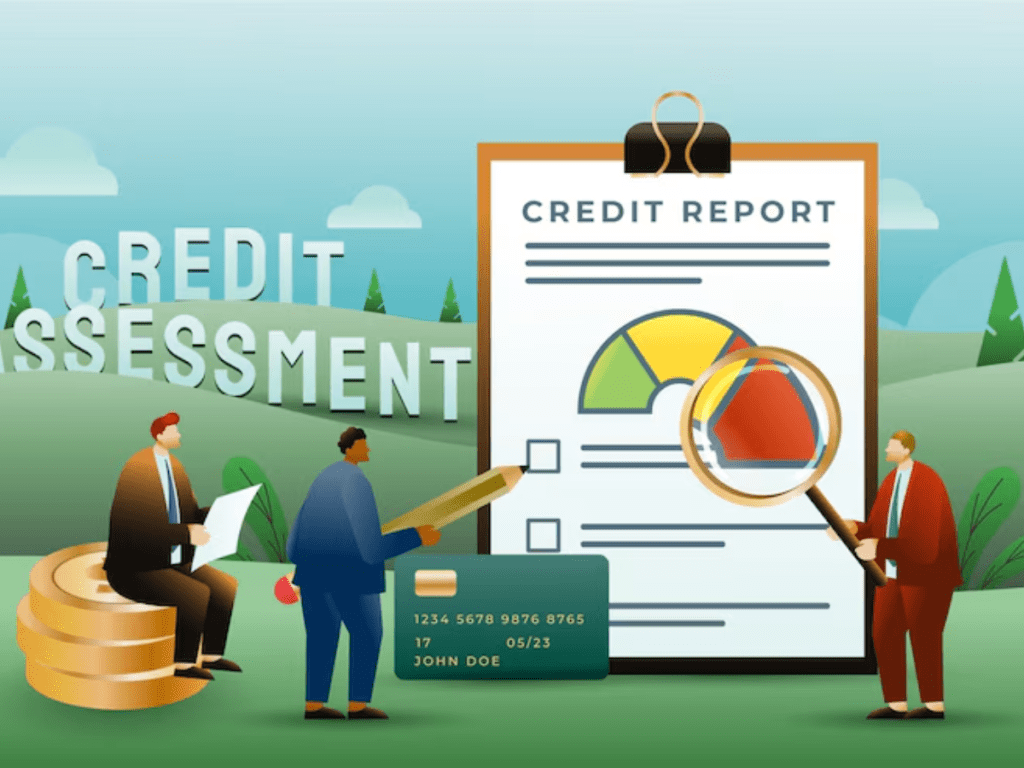Introduction
A credit score is an integral element of personal finance in the modern economy It is a numerical representation of your credit-worthiness based on how well you have borrowed and repaid loans and credit accounts Your credit score is a central element in bank lenders landlords insurance companies and even some employers’ financial assessments Credit scores range from 300 to 850, with higher values reflecting better credit-worthiness When you seek a loan your credit score is a prime concern for lenders as they use it to assess the credit risk of lending to you Hence it is crucial to know the influence of loan applications on your credit score in order to ensure the security and integrity of your overall financial position
How the Credit Inquiry Process Works
When ever you get credit the lender will ask to look at your credit report This type of activity is called a credit inquiry There are two kinds of credit inquiries soft inquiries and hard inquiries Both serve different purposes and have a different effect on your credit score A soft inquiry also referred to as a soft pull happens when someone or business pulls your credit report as part of a background check or you view your own credit These types of inquiries never touch your credit score and cannot be seen by other lenders Examples of soft inquiries are viewing your own score pre-qualification for credit card offers and some job background checks A hard inquiry or hard pull happens when a lending company looks at your credit report as part of making a lending decision on you for money They use your credit report to help make their lending decision Unlike a soft inquiry hard inquiries can touch your credit score and can be seen by other lenders on your credit report
The Impact of Hard Inquiries on Your Credit Score
A hard inquiry can lower your credit score by a few points typically by five to ten points The specific effect depends on the overall credit history of the individual Generally speaking if you have a long credit history of responsible credit behavior and limited inquiries your score will likely decrease very little But if you have a shorter credit history or several recent inquiries the effect will be more apparent It is worth mentioning that hard inquiries stay on your credit report for two years but their effect on your credit score usually decreases after one year This is due to the fact that credit scoring algorithms like those produced by FICO and VantageScore give greater weight to more recent credit activity compared to older information
Why Lenders Conduct Hard Inquiries
Lenders conduct hard inquiries to assess your risk as a borrower By pulling your entire credit report they can see important factors like your payment history the amount of debt you owe the age of your credit account and the kinds of credit you have This information assists them in making a decision whether to grant you a loan and at what interest rate and terms to make you the offer In addition hard inquiries assist lenders in fighting fraud by verifying your identity and ensuring the accuracy of the information they receive about you
Typical Scenarios Which Initiate Hard Inquiries
Hard inquiries are usually initiated by requests for new credit lines They include requesting credit cards personal loans car loans student loans mortgages and sometimes even lease agreements or utility accounts Depending on the lender requesting a credit limit raise on a current credit card may also trigger a hard inquiry Furthermore when you co-sign another person’s loan the lender will probably make a hard inquiry into your credit too
How Multiple Hard Inquiries Can Affect Your Score
Although a single hard inquiry does not have much impact multiple hard inquiries over a short time can alert lenders to financial difficulty Although it is rare that a single hard inquiry will have an impact multiple hard inquiries over a short period can alert lenders to financial distress Further a lender might assume if they notice several hard inquiries on your report over a few months that you are attempting to borrow more than you can handle increasing your risk factor As such they will reject your application or give you worse terms Fortunately credit scoring models compensate for instances when consumers are shopping for large loans like mortgages auto loans or student loans If multiple inquiries of the same kind occur over a short time frame usually 14 to 45 days depending on the model they are considered one inquiry so you can shop around without inflicting too much damage to your credit score Credit card applications on the other hand are handled differently Every application is considered an individual inquiry, which can cause a bigger hit to your score if you apply for several cards over a short time
Strategies to Limit Hard Inquiries and Protect Your Score
There are a few strategies you can use to limit the influence of hard inquiries on your credit score and have a balanced credit profile
Understand the Type of Inquiry Being Made
Before you get any type of credit inquire from the lender if the application would be a hard or soft inquiry Knowing this difference enables you to make educated choices and steer clear of unwanted hard pulls on your credit report
Use Prequalification Tools
Most lenders and credit card companies have prequalification tools that utilize soft inquiries to determine whether you are eligible The option allows you to shop around and see what terms you would qualify for without this action impacting your credit score These tools are particularly useful if you are comparing prices and do not want to have several hard inquiries
Limit the Number of Credit Applications
Apply for credit only when necessary Each hard inquiry has the potential to lower your score and frequent applications can raise red flags for lenders Make a habit of spacing out your credit applications to minimize the cumulative impact on your credit score
Time Your Applications Carefully
If you anticipate having to make several credit-related choices like obtaining a car loan and a mortgage attempt to make them in close proximity to one another so they are only recorded as a single inquiry by credit scoring systems Especially when rate shopping where several inquiries can be aggregated into one to save your score
Keep an Eye on Your Credit on a Routine Basis
Monitoring your credit report and score assists you in being vigilant of new inquiries and makes sure they are legitimate If you see a hard inquiry that you do not recall authorizing call the credit bureau to have them investigate and dispute the entry if needed Monitoring can also warn you about identity theft or unauthorized transactions occurring
Consider Alternative Financing Options
Depending on your expenses you might qualify for other credit sources that have no hard pull required For example taking a loan from friends and family with a secured loan or opting for credit-building devices such as a secured credit card may give you the funds or the credit history required without the equivalent effect on your credit score
Plan Ahead for Major Financial Decisions
If you are certain you will be taking out a major loan like a mortgage or auto loan make your financial activity prior to the application accordingly Avoid acquiring new credit accounts or taking big purchases on credit in the run-up to your application A reduced credit score because of recent inquiries may result in higher interest or even denial of the loan
Rebuilding Your Score After Multiple Inquiries
If your credit score has fallen because of several hard inquiries there are things you can do to recover your score over time Paying your bills on time every month is the single most significant contribution to keeping and enhancing your credit history Further keeping the amount you owe lower decreases your credit utilization ratio which improves your score Leave old credit accounts open to have a longer average credit history and avoid new applications for credit only if absolutely necessary If you are rebuilding your score you might use a secured credit card or a credit-builder loan These tools are intended to allow people with low or limited credit histories to develop good payment patterns and enhance their scores over time
The Role of Credit Education in Financial Health
Knowing how loan applications and credit inquiries impact your credit score is one facet of a broader commitment to financial education Knowing how credit scores are determined and what you can do to impact them gives you the power to make informed decisions based on your long-term objectives Instead of shying away from credit altogether and compromising your financial potential concentrate on using credit responsibly and strategically
Sustaining a Balanced Credit Approach
Borrowing money is an ordinary and frequently unavoidable aspect of life Whether you’re borrowing to buy a house or covering surprise expenses credit availability can lend a valuable financial helping hand Nevertheless it is important to weigh the demand for credit against the value of having a healthy credit score Being judicious about when and under what circumstances you borrow credit limiting unnecessary hard inquiries and knowing how credit scoring works will ensure that you retain your financial health
Final Thoughts on Managing Hard Inquiries
The loan application and other credit processes may have a considerable but controllable effect on your credit score With careful decision-making smart timing and wise credit management you can reduce the impact of hard inquiries without compromising your financial objectives Whether you are about to buy a house expecting to buy a car or merely trying to open credit for the first time being proactive in credit inquiry management is crucial to long-term financial success By educating yourself utilizing prequalification tools and not applying for unnecessary credit you can safeguard your credit score and lay a good foundation for your future financial activities

